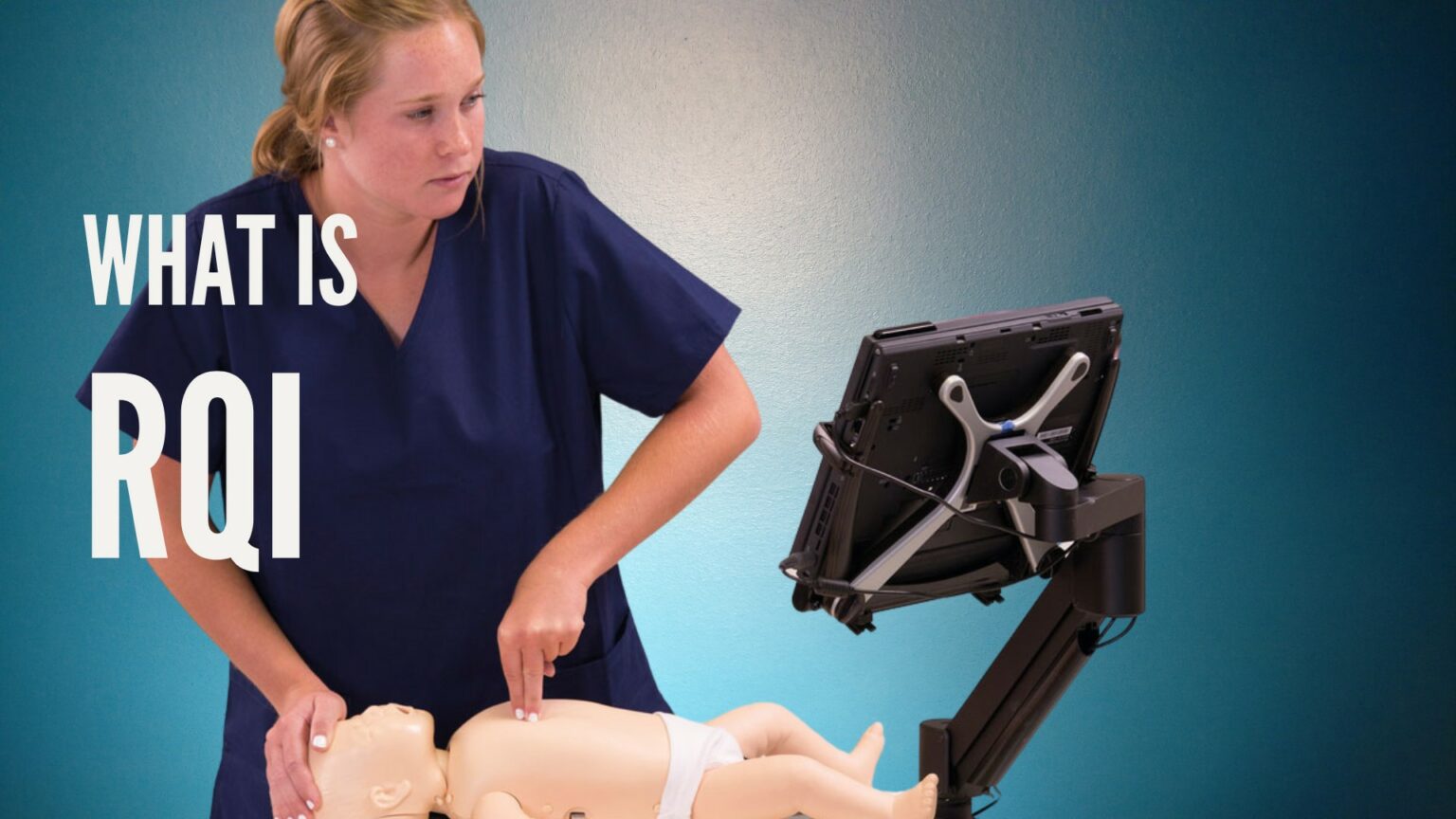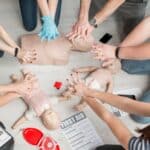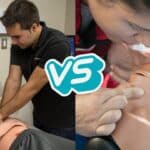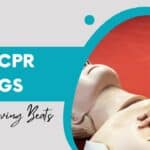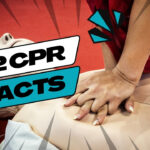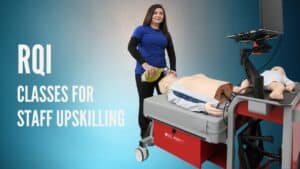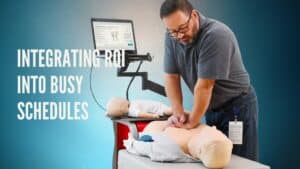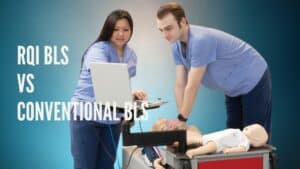High-quality CPR is the most critical factor for survival from cardiac arrest according to the American Heart Association (AHA). RQI stands for resuscitation quality improvement, and it is an innovative program from the AHA and Laerdal Medical. This program offers the only data-driven CPR training to improve CPR quality and patient outcomes.
Taking CPR to the Next Level
AHA and Laerdal Medical combined to create RQI Partners. The goal of this partnership is to save 50,000 more lives each year from cardiac arrest by 2025. High-quality CPR is the key to achieving these results. RQI Partners aims to raise the level of CPR quality for healthcare professionals across the country to meet that goal.
AHA’s HeartCode® Complete program combines quality resuscitation training using RQI simulation technology with a flexible delivery method that makes it easier for busy healthcare professionals to get the training they need. HeartCode® provides BLS, ACLS, or PALS training with two-year certification and AHA eCards upon completion of the course.
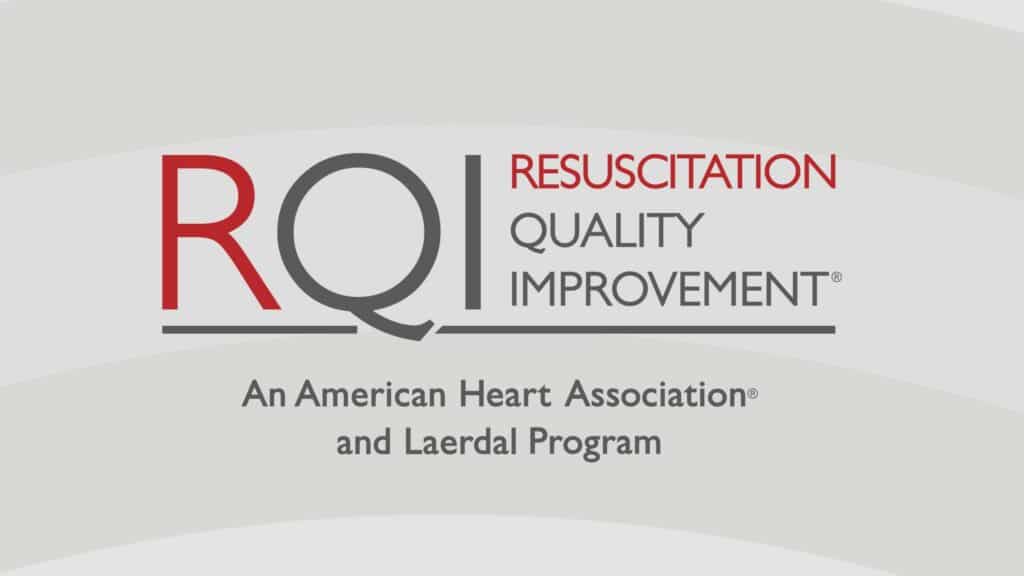
Breaking Down RQI
What is RQI? RQI changes the way healthcare workers participate in CPR training. Studies have shown that healthcare workers continue to perform compressions that are not at optimal rate and depth, which could impact patient outcomes. RQI takes CPR practice to the next level with simulation stations that provide real-time feedback and assessment.
Specific psychomotor skills for CPR include:
- Compression rate and depth
- Duration of interruptions to compressions
- Chest recoil
- Hand placement
- Ventilation volume
- Compression-to-ventilation ratio
RQI training uses simulation technology to monitor psychomotor skills and report metrics to determine the efficacy of these skills as participants practice them. During the skills training and assessment portion of the course, participants receive real-time audio and visual feedback to track their performance and help them perfect their skills through practice.
Blended Learning with HeartCode®
HeartCode® is a blended learning approach that may be customized to meet the needs and time restraints of healthcare professionals. Course content is delivered through a self-directed online program learners can complete on their own schedule. The learning path is influenced by the participant’s input based on their performance and confidence level in their current skills.
HeartCode® offers training courses for all healthcare workers, including those who are not directly involved in patient care. This basic course, known as RQI Responder, teaches basic rescuer steps and uses the adult simulation station to practice chest compressions.
HeartCode® BLS
HeartCode® BLS is recommended for healthcare personnel directly involved in patient care. Topics included in the eLearning portion of the BLS training include:
- Chain of Survival steps
- High-quality CPR for adults, children, and infants
- Foreign-body airway obstruction in adults, children, and infants
- Use of an AED
- Special considerations in BLS
- Team dynamics for multi-rescuer resuscitation
HeartCode® ACLS
HeartCode® ACLS courses are designed for healthcare professionals that regularly direct or participate in patient emergencies. The ALCS training includes:
- BLS (chest compressions, bag-mask, AED)
- Recognizing respiratory and cardiac arrest
- Recognizing peri-arrest conditions
- Pharmacology
- Airway management
- ACS and stroke management
Both courses use a variety of eLearning techniques, including illustrations, dramatizations, interactive activities, real-time decision making, cognitive assessment activities, and knowledge checks. Coaching and debriefings are also included after each knowledge check. Participants can move at their own pace and the course is designed for optimal understanding, application, and retention of the material. It can adapt to different learning styles, ensuring the success of every participant.
RQI and HeartCode® Complete Benefits for Healthcare Workers
Healthcare professionals who find it difficult to fit additional training into their already packed schedules will find numerous benefits with the HeartCode® Complete program. The eLearning segment of the course can be fit into even the busiest schedules, with ample features to ensure the information is understood and retained. The ability to customize coursework to the participant’s current knowledge base ensures time spent in certification training is most efficient for the individual.
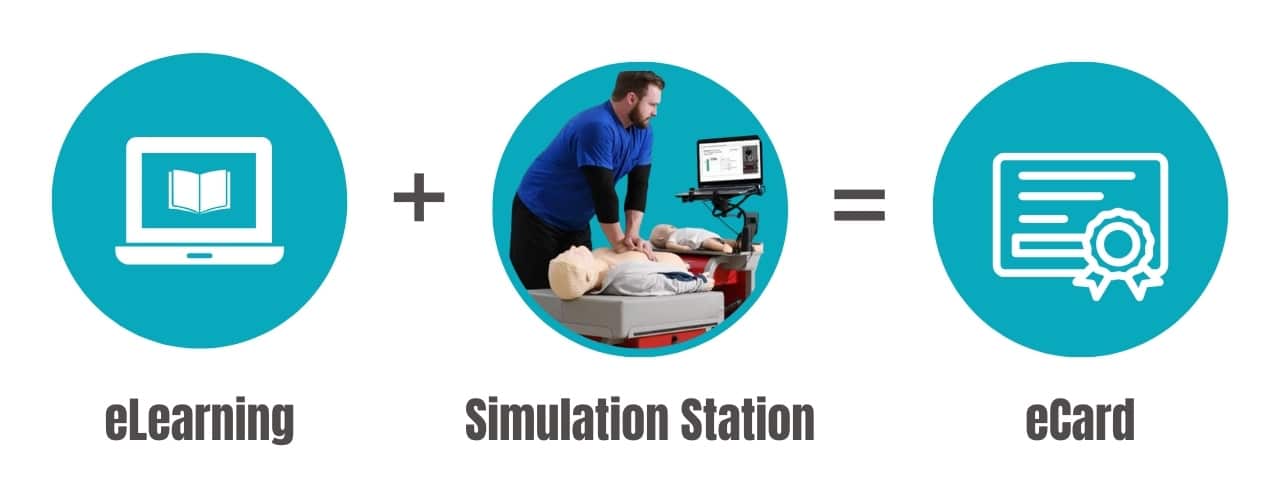
The skills check uses the simulation stations that provide real-time feedback with the ability to hone your skills as you practice. With precise feedback, healthcare professionals know they are completing compressions at the ideal rate and depth to optimize patient outcomes. These courses serve to boost the confidence and skills of workers who face urgent, life-and-death situations in their daily work.
The AHA’s evidence-based resuscitation program is considered the gold standard in healthcare training. Now healthcare professionals can benefit from this standard at the same time they earn their BLS or ACLS certification.
Impact of RQI on Patient Outcomes
The AHA has released information about how resuscitation quality improvement can create better patient outcomes. Findings conclude that through improved measurement, training, and processes of CPR quality, healthcare professionals can have a positive impact on survival rates after cardiac arrest.
The AHA determined that poor-quality CPR should be considered a preventable harm, focusing on high-quality CPR as the primary factor influencing cardiac arrest survival rates. Unfortunately, even nurses and physicians who are trained in CPR often don’t perform high-quality resuscitation. RQI training can raise the level of CPR quality to save the lives of more patients.
Get Your RQI-Enabled Training Today
BLS, ACLS, and PALS certification are necessary credentials for healthcare workers. Despite the requirements, research has found that many professionals do not perform the high-quality CPR needed to improve survival rates. RQI training using the simulation stations and real-time feedback ensure your resuscitation skills are at the highest possible level to optimize patient outcomes.
SureFire CPR is now offering RQI training to give your team the practice they need to keep their skills at the highest level. We combine use of the simulation stations with online course content that allows you to learn around your busy schedule and hone your resuscitation skills to the highest degree.
SureFire CPR offers online, in-person, and on-site training courses throughout the Southern California area. Contact us today to learn more about our certification programs.

